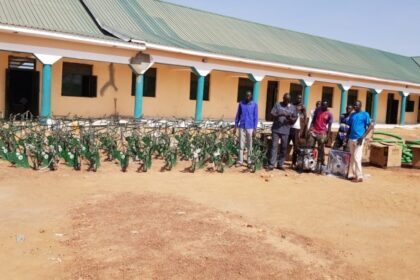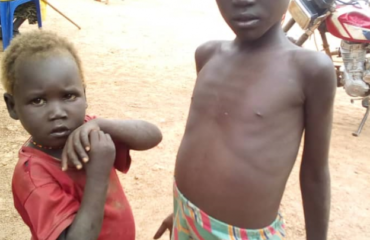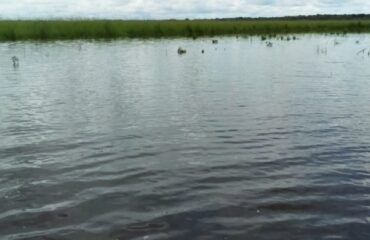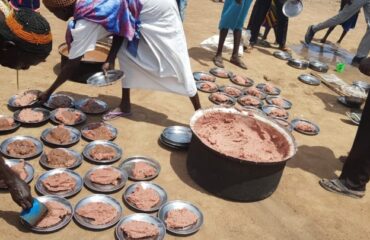
Food insecurity is highest in the most parts of South Sudan as the country is exposed to recurrent conflicts and it’s many years of civil conflicts with Sudan. In these landscapes, scarce in water and biodiversity, live some of the world’s most vulnerable people. Most of the local communities in South Sudan rely on meager resources; they lack access to diversified diets. They also have little opportunity to improve their health, education, economic growth, or development in the broadest sense.
Climate change and cyclical weather extremes have a disproportionate impact on these settings, multiplying existing threats to food security and nutrition. In the long term, climate change makes natural disasters more frequent and intense, land and water more scarce and difficult to access, and agricultural productivity harder to achieve.
Deprived of effective safety nets and social protection systems, poor and food insecure people of South Sudan can neither invest in more sustainable agricultural practices, nor even protect such modest resources as they have. They will instead resort to negative coping strategies, including overexploiting natural resources and further degrading the land. Two-thirds of people in South Sudan are estimated to be living on land that is not used to some extent. As a result, every new drought or flood further depletes people’s assets, trapping them in a spiral of diminishing resilience and environmental misery.
Christ Mission to the World (CMW) work with poor and the most vulnerable/food insecure local communities in South Sudan and Kenya helps countries and the most vulnerable and food insecure communities to help them manage their natural resources sustainably. This enables them to meet today’s livelihood needs and safeguard these resources for future generations. Our planned interventions involve soil conservation and fertility measures, water harvesting and flood control to boost agro-ecological productivity and reduce the loss of biodiversity. We develop water sources for domestic use, for agri and aquaculture, and for livestock rearing; improve forestry and agroforestry management through afforestation, tree nurseries and seed collection.
Access to clean water in such communities result in more diversified food security, thereby complementing CMW nutrition efforts as well as fighting hunger and reduces hardship in general. The availability of water to home, for example, reduces the need for women and girls to travel long distances to collect it, a common routine, which has been proved to expose them to harm
CMW’s work also aims to enhance physical access to markets and services by building or rebuilding roads, bridges, schools, canteens, latrines, market places, community granaries and warehouses, and by providing alternative sources of energy such as fuel-efficient stoves. Where feasible and appropriate, under our sustainability efforts, we transfer the responsibility for carrying out most of the tasks to our beneficiaries themselves, in effect, assisting them to develop and manage their own assets. As they build up their own nutritional status and communal wellbeing over the long term, vulnerable households receive food and tools to cover their immediate food needs.


